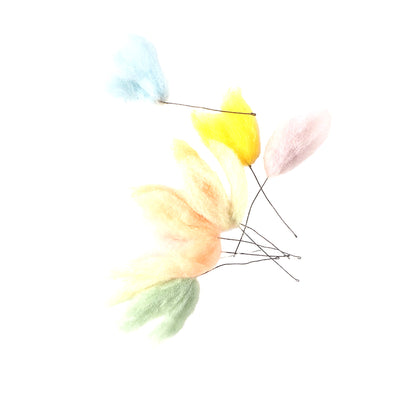Orrefors My Heart Votive
Orrefors My Heart Votive
- Available for pickup at ASI
- Low stock - 3 items left
My Heart Votive is shaped like a heart – the universal symbol of care, warmth, and love. The votive is made of thick, clear crystal with a round hole, allowing the candle to sink down enough for the flame to beam through the glass, which brings soft candlelight.
Designed by Lars Hellsten.
Suitable for Tealight Candles
1 x 3 inches
Crystal Glass
Lars Hellsten (born 1933) studied at the University of Arts, Crafts & Design (Konstfack) specializing in sculpture. He was active as a designer at Skruf Glassworks from 1964–1972 and then joined Orrefors glassworks, a collaboration that lasted over 25 years.
Hellsten’s work is represented at Nationalmuseum and Nordiska Museet in Stockholm, Småland Museum, Halland Museum of Cultural History, Röhsska Museum in Gothenburg and the Victoria and Albert Museum in London.
Orrefors is located in the Swedish village Orrefors in Småland, Sweden.
Orrefors Glassworks was founded in 1898, where ironworks operations had been run since 1726. In the same year that the glassworks was founded, a hot shop was built for making technical, medical and household glass and stemware to make use of waste wood and labor. Glass now replaced the less profitable ironworks operations.
In 1913, Consul Johan Ekman from Gothenburg became the new owner of Orrefors Glassworks. He appointed Albert Ahlin as manager of the glassworks and this marked the start of a new era. In 1914, Orrefors started manufacturing crystal products, as well as cut crystal according to purchased patterns and samples, Orrefors made art glass using the overlay technique with etched decoration. The new management quickly saw that artists were needed in the business, so Simon Gate was employed in 1916 and was joined by Edward Hald a year later.
That same year, Gate and Hald made their first tentative attempts at figure engraving. They also experimented with the new innovative graal (grail) glass technique that was developed at Orrefors by the master glassblower Knut Bergqvist. The major successes were achieved a few years later at the Gothenburg Exhibition in 1923, and in particular at the Paris Exhibition in 1925. The thin engraved glass was admired by the surrounding world, and both Orrefors and the artists themselves were awarded the Grand Prix.
The successes of Simon Gate and Edward Hald in Paris in 1925 constituted the start of the long Orrefors tradition of creative design closely combined with genuine and innovative craftsmanship.
Since then, new designers and skilled glassmakers have continued in the spirit of Gate and Hald.
















